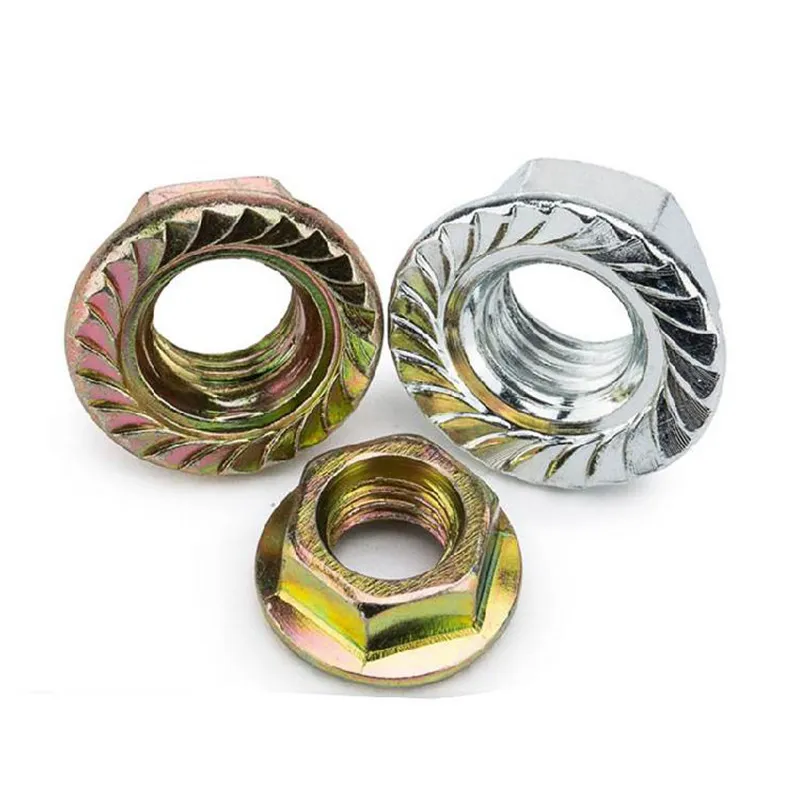

plain washer and spring washer
сеп. . 22, 2024 16:36 Back to list
plain washer and spring washer
Understanding Plain Washers and Spring Washers Importance and Applications
In the world of mechanical engineering and construction, washers are integral components that play a crucial role in ensuring the performance and longevity of various assemblies. Among the myriad types of washers available, plain washers and spring washers are two of the most commonly used. Each serves its unique purpose and is selected based on specific requirements of an application.
Plain Washers Definition and Uses
Plain washers, also known as flat washers, are thin, disk-shaped components with a central hole that are typically made from materials like steel, stainless steel, or plastic. Their primary function is to distribute the load of a fastener, such as a bolt or nut, over a larger surface area. This helps to prevent damage to the surface being fastened and reduces the risk of the fastener loosening due to vibration or other forces.
Plain washers are an essential part of many assemblies seen in both domestic and industrial applications. For example, in construction, they are commonly used in conjunction with bolts to secure structural components. In automotive manufacturing, plain washers play a critical role in ensuring that parts are tightly secured, thereby improving safety and performance. Additionally, plain washers can help to reduce wear and tear on surfaces, enhancing the longevity of mechanical connections.
Spring Washers Definition and Uses
On the other hand, spring washers, which include varieties such as lock washers and wave washers, provide a different but equally important function. These washers are designed with a curve or spiral shape that allows them to exert a continuous force against the bolted connection. This feature is vital in applications where vibration is a concern, as spring washers help to maintain tension and prevent loosening over time.
plain washer and spring washer

Lock washers, a common type of spring washer, provide additional security to bolted joints by creating friction between the surface and the fastener, making it more resistant to turning or loosening. Wave washers, on the other hand, can absorb shock, making them ideal for use in areas with dynamic loads or where components experience a lot of movement.
Choosing the Right Washer
The selection of either a plain washer or a spring washer depends on the specific requirements of the application. When a load needs to be distributed evenly, preventing damage and ensuring stability, plain washers are the preferred choice. Conversely, when dealing with applications exposed to vibrations or where a secure fastening is critical, spring washers are indispensable.
Additionally, the material choice for washers can lead to significant differences in their performance. For high-stress or corrosive environments, stainless steel or coated washers may be needed to prevent rust and degradation.
Conclusion
In conclusion, plain washers and spring washers are fundamental components in engineering and construction, each serving distinct and critical functions. Plain washers help to distribute loads and protect surfaces, while spring washers ensure that fastened joints remain secure even under dynamic conditions. Understanding the roles and applications of these washers enables engineers and manufacturers to select the appropriate type for their needs, ultimately enhancing the reliability and durability of various mechanical systems. As industries continue to evolve, the importance of these seemingly simple components will undoubtedly remain significant.
Latest news
-
MS Slotted Channel Fasteners Durable, Pre-Galvanized Mild Steel
NewsApr.29,2025
-
High-Strength Self Tapping Screws for Cast Iron Fast Installation & Durability
NewsApr.29,2025
-
Mild Steel Slotted Channel & Fasteners - Durable, Adjustable Solutions
NewsApr.28,2025
-
ISO Spring Washer - Secure, Durable Fastener with ISO Compliance ISO Spring Washer
NewsApr.28,2025
-
Mild Steel Stud Bolt Fasteners - High Strength & Corrosion Resistant
NewsApr.28,2025
-
M6x45 Shear Bolt - High-Strength Safety Fastener
NewsApr.28,2025

